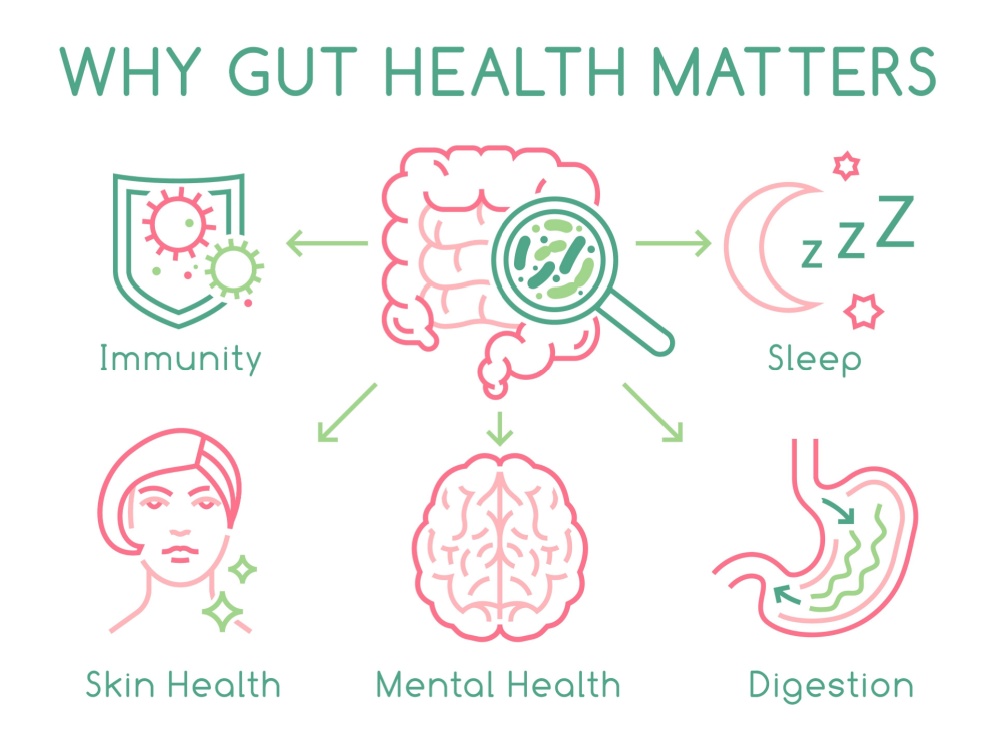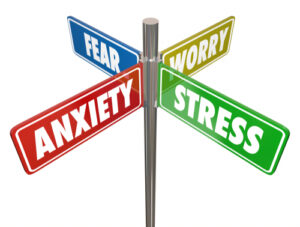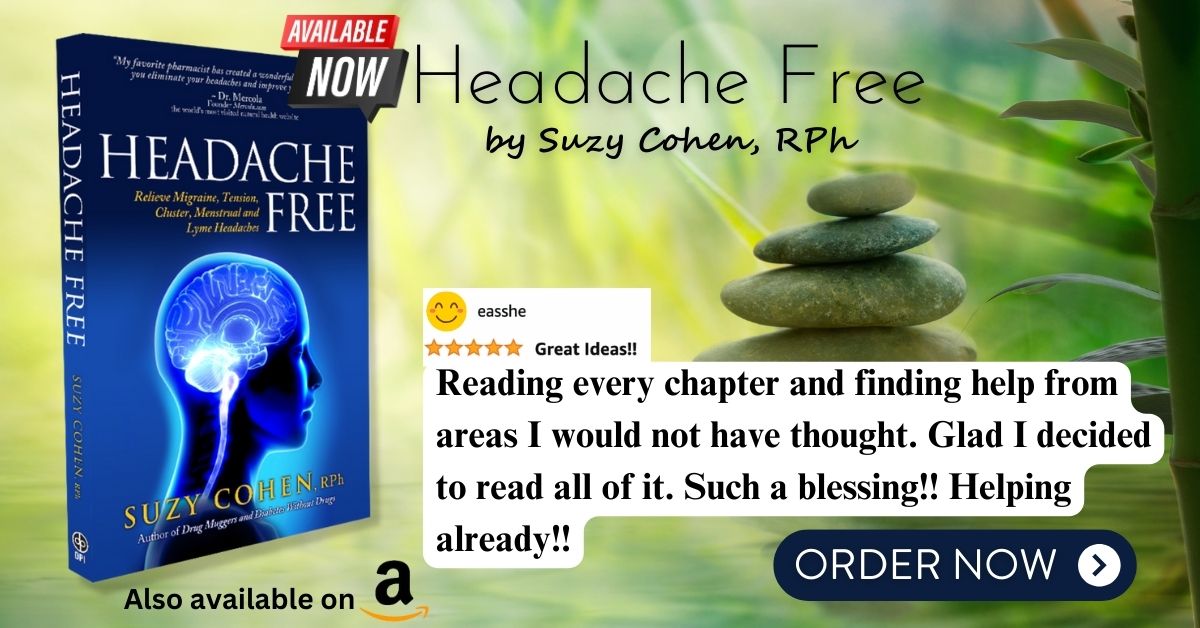What's On This Page?
ToggleThe symptoms of anxiety are awful and can be disabling for some people. Every little thing you do can help, and one thing that people don’t think of is their stomach. Specifically your gut flora in your intestines!
Let’s talk about anxiety. While everyone experiences anxiety a little differently, for most people it’s like a sense of dread that never fully goes away, but looms over you like a cold, wet blanket. For you, there may be periodic spikes in panic or fear that can come on seemingly out of nowhere, during an otherwise uneventful, happy day.
Perhaps you are lying awake at night and thinking and replaying the same stressful thoughts. It’s like someone hit your rewind button and it got stuck. Is this when you reach for a drink? Or for weed? Is this when you start cleaning, or calling people for support? No matter how you experience anxiety, or how you handle it, the following information is important for you. And because I’m a thyroid expert, I’ve created a small section about how thyroid hormone plays into this.
If you want to see the emotional impact of what you eat, on your mood, CLICK HERE to read a study published in “Gut Pathogens, 2009.”

Gut Bugs Impact Your Brain
No matter how you experience anxiety, if you suffer with general anxiety you may expect it will become worse with time without treatment or prevention. And prevention is what I’ll help you with today: Gut bugs impact your brain.
You can soon stop fretting about relationships, money, family issues or job-related stress. I hope that what I tell you today will allow you to compartmentalize the intrusive thoughts that occupy your brain. Read how serotonin is made in THE GUT, not in your brain – 90% in fact! It doesn’t even cross the blood-brain barrier!
Today is the day to do something about it
As a pharmacist, you might assume I’m planning to suggest a litany of tranquilizers and sedatives, but I’m not. That is the worst thing you could do and I rarely recommend drug treatment for this. In fact, I’m not a big fan of benzodiazepines in general… you can READ what I’ve written about them in my article Benzodiazepine Dangers and Lies.
Anxiety: Drugs are Not the Answer
What I am suggesting may surprise you – that probiotics, those friendly little bacteria that populate your digestive tract and makeup what is known as your microbiome, impact your brain. It’s weird to think about it though: What on Earth does your digestive flora have to do with your mental and emotional state? (I can almost see you shaking your head, thinking this girl is crazy, or like the kids say now cra-cra!)
Many of you reading this have been brainwashed to believe that drugs are the only answer… and that something so simple and cheap couldn’t possibly help!
Some of you are inflicting terror upon yourself with your food choices and few practitioners are willing to tell you this. We health bloggers want to be liked, we want to be shared and we want wonderful comments, so we (as a group) generally don’t say things that could be perceived as inflammatory.
Tough Love
But I’m willing to in the name of tough love. Here goes: If you eat crap and decimate your friendly microflora, then opportunistic bacteria take over microbiome. Your gut becomes overpopulated with the UNfriendly pathogens that want to destroy you. They literally want to eat you alive.
If you have a healthy microbiome, your mind will think more clearly and you’ll be happier, calmer and probably less aggressive. If your gut is populated with disgusting, pathogenic worms, yeast, fungi, bacteria, or prions, you’ll feel tired, irritable and anxious and may develop more serious mental health issues in time.
Blasphemous, isn’t it, to say such a thing when I should be advocating more pills, eh?! Bad pharmacist! I just smacked myself for you. (Not really.) It’s a good time to tell you almost ALL medications have the potential to cause anxiety and depression (even if you are calm) because they deplete B12, folate, thiamine, magnesium, selenium, CoQ10 and other that are required to make calming neurotransmitters as well as the antidepressant thyroxine (thyroid hormone).
Let me go through the main categories now which encompass more than 1000 individual drugs:
Medications that May Spark Anxiety
- Asthma inhalers and pills- Albuterol, salmeterol, theophylline and formoterol
- Antihypertensives- Methyldopa and amlodipine
- Estrogen-containing medications/patches/shots, oral contraceptives and HRT (hormone replacement therapy)
- Breast cancer medications
- Antibiotics- through their depletion of gut microflora which reduces GABA (gamma-aminobutyric acid)
- Stimulants to treat ADHD or fatigue- Amphetamines, Benzedrine, Dexedrine, and Ritalin, Concerta, etc
- Over-the-counter (OTC) stimulants such as No-Doz, Vivarin and others
- Cough medications that contain decongestants like pseudoephedrine
- Steroids- Dexamethasone, Prednisone, Hydrocortisone
- Thyroid Medications- High dosages spark anxiety and irritability
- SSRI antidepressants-Celexa, Paxil, Prozac, Zoloft to name a few
- Anti-seizure- Phenytoin
- Anti-Parkinson’s- Levodopa
- Decongestants- Pseudoephedrine, found in OTC allergy pills
I’ve written about some of these medications in the past, so please use my search box to research anything you’d like!

The Role of Probiotics in Anxiety
Your natural gut flora do so many vital things for your body, yet they never get any credit. Among the most important, your gut bacteria are in charge of regulating your immune system.
People with the worst allergies often have the worst diets, high in refined carbs and sugar and low in nutrient-dense foods.
This type of diet can alter immune function, increase histamine and deplete nutrients that are needed for mood stability.
Instead of realizing this, they often live on allergy pills and mood enhancers.
Mood-Regulating Chemicals that Contribute to Calm
Gut microbiota plays a significant role in the production, synthesis, and breakdown of various mood-regulating chemicals, including those mentioned earlier like serotonin, dopamine, and GABA, among others. This interaction between the gut microbiota and the brain is part of the gut-brain axis, a complex communication network that links the enteric nervous system of the gastrointestinal tract with the central nervous system.
Serotonin Production: A large portion of the body’s serotonin, up to 90%, is produced in the gastrointestinal tract. The gut microbiota influences the production of serotonin through its interaction with enterochromaffin cells in the gut lining. Certain gut bacteria can stimulate these cells to produce serotonin, which can then impact mood and gastrointestinal function.
GABA Production: Some strains of gut bacteria can produce GABA, the primary inhibitory neurotransmitter in the brain, which plays a critical role in reducing excitability in the nervous system and promoting relaxation. Studies have shown that altering the gut microbiota can affect GABA levels in the brain, suggesting a potential pathway through which the gut microbiota can influence mood and anxiety levels.
Dopamine and Other Neurotransmitters: While research is ongoing, there is evidence to suggest that the gut microbiota can also influence the levels of dopamine, a neurotransmitter associated with pleasure and reward, as well as other neurotransmitters that affect mood and behavior. The mechanisms include the direct production of neurotransmitter analogs by certain bacteria or the modulation of neurotransmitter production by the host’s cells in response to microbial signals.

Impact on the Immune System
The gut microbiota also plays a crucial role in the development and function of the immune system. Chronic inflammation, which can be influenced by dysbiosis (an imbalance in gut microbiota), has been linked to several mood disorders, including depression and anxiety. By regulating immune responses, the gut microbiota can indirectly affect brain health and mood.
Gut bacteria ferment dietary fibers to produce SCFAs (Short-Chain Fatty Acids) such as butyrate, propionate, and acetate, which have various beneficial effects on brain health. SCFAs can modulate the blood-brain barrier’s integrity, influence neuroinflammation, and modulate the production and release of brain-gut axis hormones and neurotransmitters.
These insights have led to increasing interest in how probiotics, and prebiotics influence mood, anxiety and mental health. Since the majority of immune function happens in the gut, paying attention to this area may improve allergies by retraining your immune cells to notice the difference between harmful and non-harmful things that you are exposed to, like pollens.
Probiotics Indirectly Help with Anxiety
In this way, restoring your microbiome by taking healthy probiotics may support healthy immune function. Gut bacteria (the good kind) helps your immune cells differentiate between “self” (like your thyroid gland) and “nonself” particles (from say, tuna fish) so that your immune cells don’t overreact to your own body.
If you can’t tell self from nonself, your body just goes on a destruction spree and this is known as an autoimmune attack. When the attack is aimed at your nerves, it’s called multiple sclerosis, when it’s aimed at your joints and synovial fluid, it’s called rheumatoid arthritis, when it’s aimed at your thyroid it’s called Graves’ or Hashimoto’s disease, and so on. I have more articles on Hashimoto’s and Graves’ so please use my search box for the latest information.
Headaches Go Hand-in-Hand with Anxiety
Gut bacteria also improves the process of elimination and is thought to support gut transit. When your bowels function properly, you get fewer headaches. In my book, Headache Free, I said in regard to poisons in your bloodstream, “If it backs up in your blood, it backs up in your head.” So bowel function is huge when it comes to brain health, especially if you suffer from migraines and cluster headaches.
Your intestines activate thyroid hormone, in fact about 20% of your active T3 thyroid hormone is activated in the gut, so again, improving your gut flora plays a role with energy, metabolism, and skin/hair health. For more information about thyroid, and how low levels are mistaken for other mental health disorders, read my article, Hypothyroidism Often Mistaken For OCD, Depression Or Anxiety.
Do Probiotics Work like Benzodiazepines?
Well, sort of. Benzodiazepine drugs work by improving your body’s use of your GABA, a calming hormone that is high when you sleep. GABA deficiencies are linked with anxiety, stress, insomnia and many diseases. Benzodiazepines don’t make more GABA, they just allow your own GABA to work a tad longer. Probiotics don’t make better use of your GABA, rather they actually create some! Bravo, probiotics! And the bonus is they’re not addictive like benzos are.
You may want to read my other article, Benzodiazepines Dangers and Lies.
If probiotics can help you manufacture various neurotransmitters including GABA and serotonin, then you’re going to feel better over time. Both of these neurotransmitters play a role in anxiety and depression. Your gut bugs make more neurotransmitters than any drug can ever make.
This is another reason NOT to annihilate them with soda pop and junk food. When you destroy them, you feel depressed and anxious. Healthy gut bacteria boost the role of GABA, a restraining chemical that downplays the buzzing of excitable neurons.
Probiotics and Stress Reactions
Gut flora also influences the brain by affecting the stress response via the hypothalamic-pituitary-adrenal (HPA) axis, which plays a role in the making of and cycles of cortisol and other stress-related hormones. When the cyclical rising and falling of cortisol is disrupted, it plays a role in your mood and cognitive function, so getting this back on track supports mental and emotional health.
With high cortisol, you might look like you have Hashimoto’s actually, because the symptoms are fatigue, anxiety, weight gain, a puffy face, irregular menses, fertility problems and muscle aches and pain. Imagine getting diagnosed with GAD (generalized anxiety disorder) or bipolar disease when it’s just poor probiotic status! Happens to thousands of you every day. Speaking of bipolar disorder, I recently found a study about the impact of Vitamin D and Zinc on this condition, and how it impacts lithium and olanzapine treatment. READ THAT HERE.
How many of you have been referred to a psychiatrist for a psyche eval or counseling when maybe it was just an imbalanced gut that needed detoxification and probiotic restoration?
Hyperthyroidism Causes Anxiety – The Connection to Gut Flora
Think of your body as a highly interconnected network, where your thyroid, brain, and gut are constantly chatting with each other. In hyperthyroidism, your thyroid is like a machine that’s stuck in 5th gear, pumping out more thyroid hormones than your body needs. This can occur in Hashimoto’s, or in people who take thyroid medication (but the dose is too high for them).
Hyperthyroidism can make you feel like you’re constantly in overdrive, leading to symptoms that feel a lot like anxiety: Jitteriness, a fast heartbeat, and feeling on edge. If you have a caffeinated beverage, you’ll make things even worse!
Now, your gut plays a crucial role in this scenario, too. It’s not just about digestion, your gut is home to countless microbes that we’ve been talking about, and they do influence your mood and health. It’s because they make neuroactive compounds like GABA and serotonin, chemicals that help keep your mood balanced. So when your thyroid is in hyperdrive, it throws all of this out whack!
Moreover, hyperthyroidism can make your gut speed up, leading to lower levels of feel-good chemicals, potentially heightening feelings of anxiety! That’s kind of how it works. Managing one aspect, like getting hyperthyroidism or Hashimoto’s under control, or adjusting your thyroid medication dose can reduce anxiety within hours.
Gut Microbiome and Anxiety
Healthy microflora and probiotics are considered anti-inflammatory, and chronic inflammation is known to be one of the roots of depression and other mood disorders.
Strong evidence for the gut-brain axis, as it’s called, comes from the University College Cork. Researchers fed mice with a probiotic strain called Lactobacillus rhamnosus, found in dairy and also probiotic supplements. The L. rhamnosus changed the levels of signaling chemicals in the animals’ brains, and was able to lower all behaviors associated with depression, stress and anxiety.
Lactobacillus increased the numbers of GABA receptors in parts of the brain associated with learning tasks, remembering things and emotional stability. Your GABA hormone is involved in fear and mood. For example, animals who express symptoms of depression have been shown to have lower levels of GABA receptors in the frontal cortex of their brain.
Basically, the mice who regularly consumed food laced with the Lactobacillus strain, spent more time in an area of a maze that was wide-open and exposed (this is apparently a commonly accepted test for anxiety levels with mice).
The mice who did not eat the probiotic-enriched meals spent more time hiding and would just drift off motionlessly when plopped into water, thus the assumption of depression. Levels of cortisol and other stress markers were measured as well. So this is how the researchers determined that probiotics impact mood and fear levels.
The body of research supporting the ability of probiotics to lessen anxiety is already fairly robust and continuing to grow, even on human subjects. For instance, a 2011 study published in the British Journal of Nutrition found that healthy human subjects who took a probiotic containing Lactobacillus helveticus R0052 and Bifidobacterium longum R0175 for 30 days experienced less depression, anger, and anxiety. As an added bonus, they also enjoyed increased problem solving!
Anxiety is easy to target. It’s not just healthy folks who have benefited—a randomized, double-blind, placebo-controlled pilot study (considered to be the gold standard of study design) randomized 39 patients with Chronic Fatigue Syndrome to either receive a probiotic containing 24 billion colony-forming units Lactobacillus casei strain Shirota or a placebo for two months. The patients who took the probiotic experienced a significant decrease in anxiety symptoms.
Even the Journal of the American Medical Association, a well-respected yet very traditional medical journal, is supportive of the link between probiotic use and lessened sensations of anxiety. It published a thoughtful review of the literature on the impact of probiotics on mental health in 2015.
Our Bowels Influence Behavior
If you are struggling with anxious thoughts or fear, consider that the real thing to be fearful of might be what you’re eating. Junk food, processed foods, refined sugars, certain medications and low-quality supplements may impact your gut, and then your gut-to-brain connection is hampered.
This is one very likely cause for unstable moods and anxiety. Please don’t underestimate how much our bowels exert an influence on our behavior and emotional well-being! An accumulating body of evidence shows how gut bacteria improve mood. Unfortunately, it’s much easier for people to pop mood-enhancing pills than repair the gut and avoid foods and beverages that so easily destroy it.
I’m not an ogre, I’m not advocating wheat germ and water all day long, I’m just saying minimize the junk! It has the potential to lower your mood, ruin your sleep and ultimately your life.
6 Step Plan to Reduce Anxiety
1. Some type of detoxification whether it is a juice or water fast, or greens drink or other. Consider my Yummy Greens which is a superfood drink mix that is goitrogen-free. It tastes AMAZING! If you don’t want to shop with me, that’s fine, consider any superfood green drink mix because they are detoxifying and alkalizing. The high mineral content will give you magnesium which is instantly calming and magnesium reduces blood pressure.*
Another option is plain water if you don’t want a green drink, just pure fresh ice water, or even better, some electrolyte-infused water. Unflavored Pedialyte® or a generic version of this would be fantastic, even if it’s just a little bit each day. It is hydrating.
2. Some kind of gut-repair supplements. Avoid very high doses of supplements that contain glutamine because that can form glutamate and then you’re in trouble, as it’s highly anxiety-producing. Be careful with very high doses of glutamine even though it’s pitched for gut health. Consider this: You may not need your acid blocking drugs once you clean up your diet
3. Check your prescription list. See if there are medications that you take from my list above. Those can cause instability of mood, and can increase your risk for anxiety. Maybe you can talk to your doctor about switching to another type of medicine that is less likely to produce anxiety.
4. Avoid or at least minimize fast food, heavily refined sugars, and sweets. Lean into a keto-friendly diet. Avoid food additives like colored drinks, things with MSG or tartrazine, or artificial sweeteners. These types of food additives are not your friend, your body has a hard time processing them and breaking them down to clear them out.
5. Look at home, look at your relationships, your job and your friends. Do any of these areas cause gloom and stress? If there is a hardship anywhere or with anyone in your life, it can trickle into your entire day and cause unnatural anxiety. In this case, you have to do the hard work and tidy up your life, and the people you allow in it. If you need help in this area, I have a tough love book available on the link below.
6. After detoxification and gut repair strategies, you can then consider probiotics, but only high-quality ones.
Supplements like this or foods rich in probiotic strains (yogurt, for example) is so much safer IMHO and I just love it when something simple, natural, and even potentially delicious can ease troubling symptoms.

Suzy Cohen, has been a licensed pharmacist for over 30 years and believes the best approach to chronic illness is a combination of natural medicine and conventional. She founded her own dietary supplement company specializing in custom-formulas, some of which have patents. With a special focus on functional medicine, thyroid health and drug nutrient depletion, Suzy is the author of several related books including Thyroid Healthy, Drug Muggers, Diabetes Without Drugs, and a nationally syndicated column.



